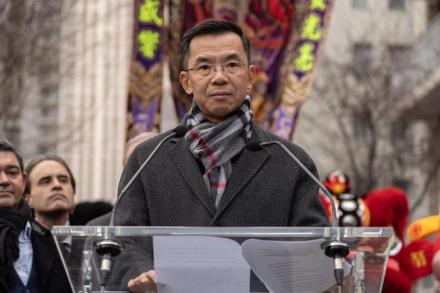A Chinese diplomat has let slip the truth about Beijing’s foreign policy
The off-colour comment by Lu Shaye, China’s ambassador to France, that post-Soviet countries such as Estonia, Latvia and Lithuania did not enjoy ‘an effective status within international law’ was not a gaffe or a case of a Chinese official gone rogue. Instead, Shaye’s remark, which he made on Friday night on France’s LCI channel, must be seen for what it is: a telling admission of Beijing’s real thinking about international relations, which is far cruder and Hobbesian than most Europeans are willing to admit. Why should we take Lu at his word when he says that for Soviet Republics including the Baltic states ‘there’s no international accord to concretise their





















